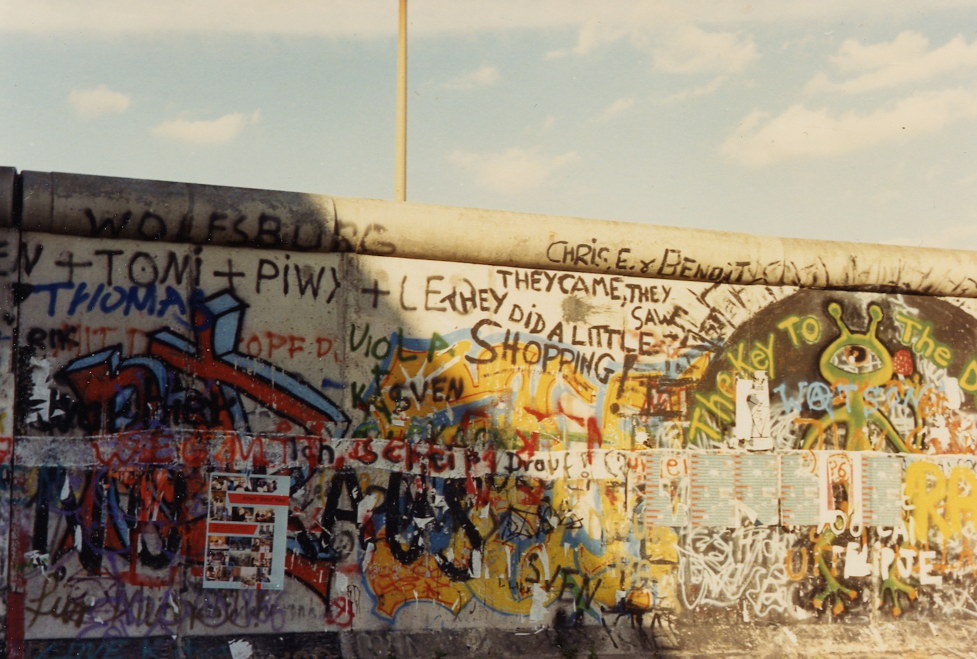Autonomy
February 19th, 2022 by Alan Kirker
West Berlin Wall, 1987
“In developmental psychology and moral, political, and bioethical philosophy, autonomy is the capacity to make an informed, uncoerced decision” (Wikipedia, retrieved Febrary 2022).
Can we use experiences of anomalous physical sensations to consider a thought experiment: How might an authoritarian regime use technology, perhaps in a so-called ‘smart home’, to punish, behaviour-modify, or “re-educate” its citizens? Is it worthwhile to consider advanced technological capability within the broader context of a shifting geopolitical landscape of social unrest, and the sorts of uses to which it might be applied, if only to speculate as to what to be on the look-out for? How might a government or a security organization control people under such dark scenarios?
Author Aleksandr Solzhenitsyn describes Soviet prisoners, or “zeks”, having to create their own re-education encampments, or Gulags, in his book “One Day in the Life of Ivan Denisovich” (1962):
“Shukhov remembered that this morning his fate hung in the balance: they wanted to shift the 104th from the building-shops to a new site, the ‘Socialist Way of Life’ settlement. It lay in open country covered with snow-drifts, and before anything else could be done there they would have to dig pits and put up posts and attach barbed wire to them. Wire themselves in, so they wouldn’t run away” (p. 9).
In the closing pages of his book, Gulag Boss: A Soviet Memoir, author Fyodor Vasilevich Mochulsky questions the notion of the gulag more generally:
“Why? For what? Could it really be for the sake of speeding up the building of a “new socialist society” for future generations, at the cost of many lives and the suffering of the present population? But if it were that, then this is a barbarity that has nothing to do with socialism at all!” (2011, p. 172).
In the essay titled “Autonomy and Authority – The Solution of Democracy” (1982), Philosopher Carl Cohen clarifies that democratic systems enable populations to “impose legislative restraints upon themselves” (1982, p. 470), to avoid having their people literally “wire themselves in”, gulag-style. This artist’s concept hints at how a modern-day re-education room, or “buzz-box”, might function, albeit unbeknownst to those living in it.
Cohen, C. (1982), Autonomy and Authority – The Solution of Democracy, in Minton, A. J. & Shipka, T. A. (Eds.), (1990) Philosophy: Paradox and Discovery, Third Edition, (pp. 467 -475). New York, United States: McGraw-Hill Publishing Company.
Mochulsky, F. V. (2011) Gulag Boss: A Soviet Memoir, edited and translated by Deborah Kaple. New York, United States: Oxford University Press.
Solzhenitsyn, A. (1962) One Day in the Life of Ivan Denisovich, translated by Ralph Parker. London, United Kingdom: Penguin Books (2000 Edition).